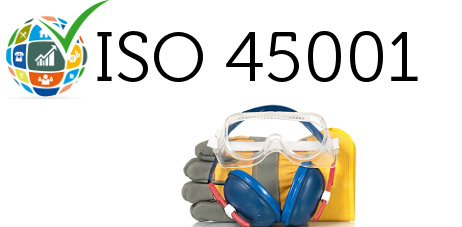ISO 45001:2018, Occupational health and safety management systems – Requirements with guidance for use, provides a robust and effective set of processes for improving work safety in global supply chains. Designed to help organizations of all sizes and industries, the new International Standard is expected to reduce workplace injuries and illnesses around the world.
According to 2017 calculations by the International Labour Organization (ILO), 2.78 million fatal accidents occur at work yearly. This means that, every day, almost 7 700 persons die of work-related diseases or injuries. Additionally, there are some 374 million non-fatal work-related injuries and illnesses each year, many of these resulting in extended absences from work. This paints a sober picture of the modern workplace – one where workers can suffer serious consequences as a result of simply “doing their job”.
ISO 45001 hopes to change that. It provides governmental agencies, industry and other affected stakeholders with effective, usable guidance for improving worker safety in countries around the world. By means of an easy-to-use framework, it can be applied to both captive and partner factories and production facilities, regardless of their location.
David Smith, Chair of project committee ISO/PC 283 that developed ISO 45001, believes the new International Standard will be a real game changer for millions of workers: “It is hoped that ISO 45001 will lead to a major transformation in workplace practices and reduce the tragic toll of work-related accidents and illnesses across the globe.” The new standard will help organizations provide a safe and healthy work environment for workers and visitors by continually improving their OH&S performance.
Smith adds: “World standards writers have come together to provide a framework for a safer workplace for all, whatever sector you work in and wherever you work in the world.” More than 70 countries were directly involved in the creation of this important document, developed by ISO/PC 283, Occupational health and safety management systems, with the British Standards Institution (BSI) serving as the committee secretariat.
Because ISO 45001 is designed to integrate with other ISO management systems standards, ensuring a high level of compatibility with the new versions of ISO 9001 (quality management) and ISO 14001 (environmental management), businesses that already implement an ISO standard will have a leg up if they decide to work toward ISO 45001.
The new OH&S standard is based on the common elements found in all of ISO’s management systems standards and uses a simple Plan-Do-Check-Act (PDCA) model, which provides a framework for organizations to plan what they need to put in place in order to minimize the risk of harm. The measures should address concerns that can lead to long-term health issues and absence from work, as well as those that give rise to accidents.
ISO 45001 will replace OHSAS 18001, the world’s former reference for workplace health and safety. Organizations already certified to OHSAS 18001 will have three years to comply with the new ISO 45001 standard, although certification of conformity to ISO 45001 is not a requirement of the standard.
The International Accreditation Forum (IAF) has developed the migration requirements to help certified organizations, certification bodies, accreditation bodies and other interested parties prepare. For more information, see the IAF Website.
ISO 45001:2018 can be purchased from your national ISO member or through the ISO Store.
Source: https://www.iso.org/news/ref2272.html

